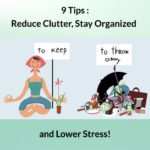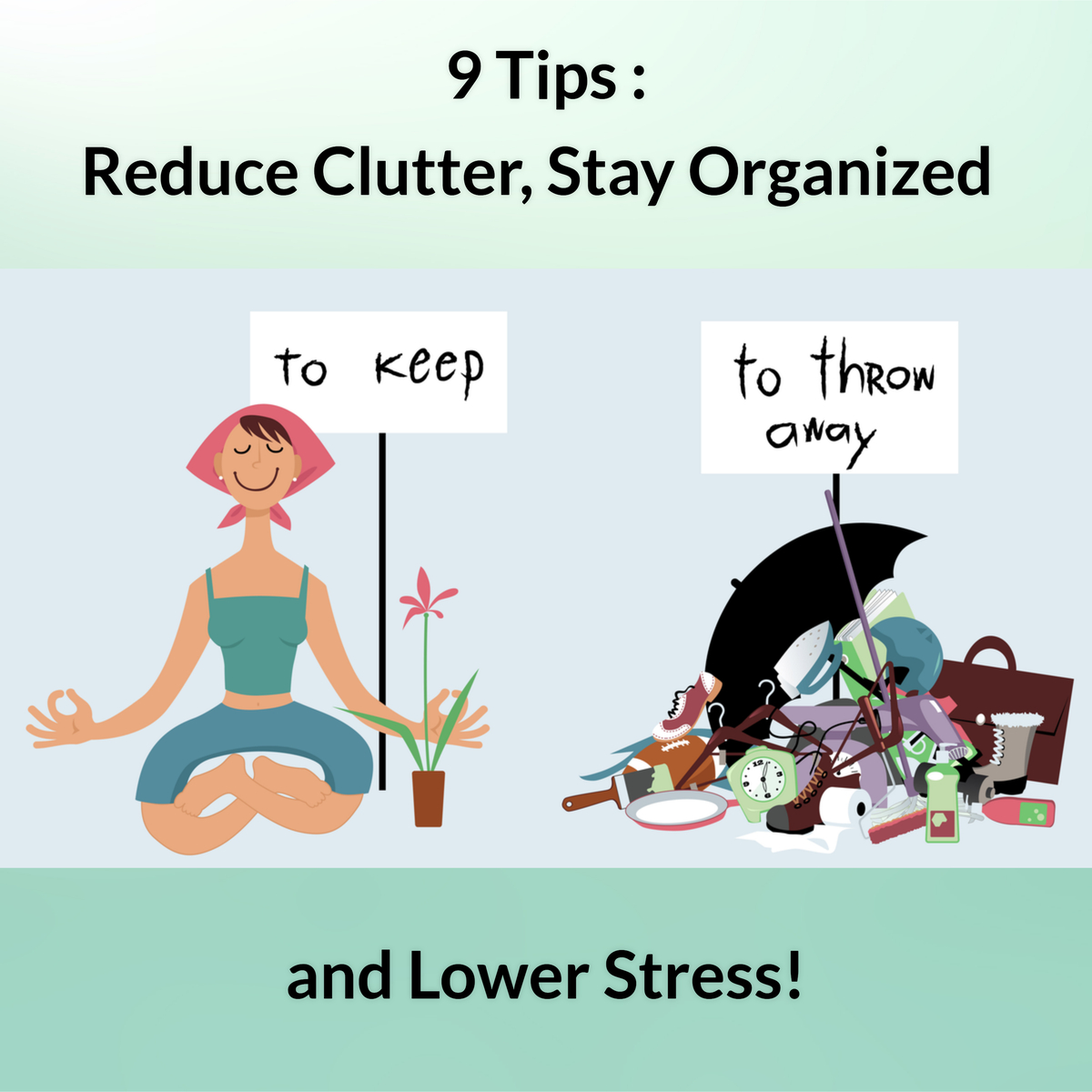
The holidays are over, and now it’s that time of year to reset our lives and re-evaluate our goals for the new year. If you are someone who wants to begin the new year with a clean slate; decluttering, specifically your household, is a great first step!
I often hear questions like, “How do I get started?” and “How do I stick to it?” Although, the first step is to really understand what happens to our personal wellness when our space is too disorganized . . .
Mental and Emotional Consequences to Clutter
Those who have excessive clutter are more likely to be overweight, have increased anxiety and depression, they may avoid their home (decreasing positive quality time at home), and in general tend to be more scattered mentally.
Whether it’s the gaggle of shoes at the front door, toys strewn across the entryway, or the piles of “stuff” that end up on the many surfaces in our homes, each item takes a millisecond of your life to process, and our brains are using valuable energy having feelings or thoughts about all of this “stuff”.
Benefits of an Organized Home
Aside from the obvious reason of being able to find your keys every day, having your home organized to a level that is helpful for you can have numerous benefits.
People with less clutter tend to be . . .
more productive
more likely to keep their place clean
have added free time
are healthier
and are less stressed!
9 Tips and Tricks to Organization
If you are ready to get started, you can try these nine methods to begin creating a more organized home:
1. Visualize how do you want to see your space? Ask yourself why you want your space to be clutter free? This will help you understand what is important to you about decluttering.
2. Throw away, keep, donate. Pick a number (12 is often suggested). Find 12 things to throw away, 12 to keep, and 12 to donate. Do this once a week, and have everyone in your household participate.
3. Organize in categories. The KonMari method to organizing suggests organizing in categories (clothing, papers, books, etc.). This can allow you to see exactly what you have so it can be easier to let go of your items.
4. Pick one spot and set a timer. When you are decluttering, the psychological benefit of knowing that your time and space is limited can keep those overwhelmed feelings from taking over.
5. Create categories and actually do something with them! Set a time limit to put it up for sale and ACTUALLY sell the items you intended to. If it doesn’t sell, do something else with it: give it away, donate, or trash. Get it out!
6. Let it go if you “might” use it “one day”. If you find yourself reasoning as to why you are keeping something (i.e., I “might” use that “one day”), there is a high probability that this item needs to go.
7. Keep the things that “spark joy”. The KonMari method suggests that if an item does not “spark joy” it should go. Having fewer things you love trumps lots of things that you kind of like.
8. Use a flowchart to organize yourself if you have difficulty following your own rules for organizing. This can be a helpful tool for children too. Pinterest has a flow chart for most decluttering tasks.
9. Employ the help of a trusted friend. Another person’s perspective on your stuff can provide a much needed reality check, which may be just the help you need to detach emotionally from your stuff.
Want more? Here are some helpful books on organizing and decluttering . . .
The KonMari Method’s best-selling book by Michelle Kondo, The Life-Changing Magic of Tidying Up: The Japanese Art of Decluttering, and the minimalist book like Joshua Becker’s: The Joy of Less: A Minimalist Guide to Declutter, Organize, and Simplify are both excellent resources to give you a structured approach to decluttering. Take what is helpful from these resources and move forward with a plan.
At the end of the day decluttering your home will only end in positive feelings. You’ll have a place you enjoy coming home to, and a healthier, happier year!
If you find that this process is too overwhelming, or it’s bringing up tough emotions you’re struggling with, counseling may be a helpful tool. Counseling can help you work through difficult emotions, and can help you to clarify what is important to you, as well as identify blocks preventing you from moving forward.
by Megan D’Angelo, MA, LMHC, Child & Adult Therapist at Centered Mind Counseling Services, PLLC

